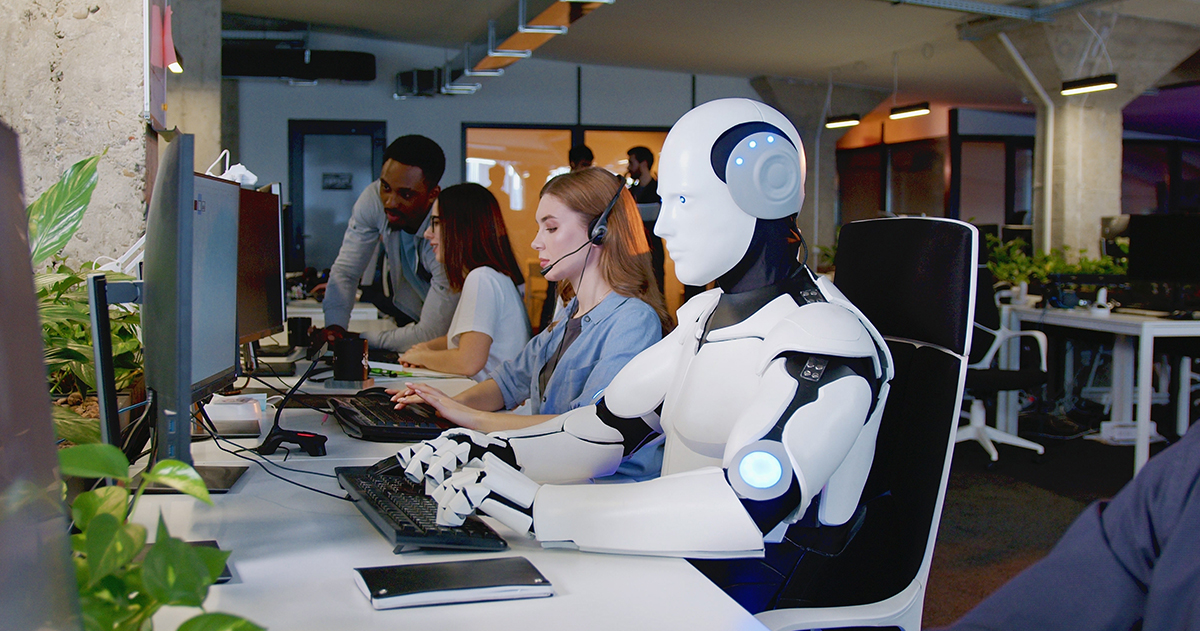
1. Automation and Efficiency:
One of the most significant impacts of AI on the future of work is automation. AI-powered technologies such as machine learning, robotics, and natural language processing can automate repetitive tasks, streamline workflows, and increase operational efficiency. By offloading mundane and time-consuming tasks to AI systems, employees can focus on more strategic and value-added activities, driving productivity and innovation.
2. New Job Roles and Skillsets:
While AI may automate certain tasks, it also creates new job roles and demands for specialized skillsets. Roles such as data scientists, AI engineers, and machine learning specialists are in high demand as organizations seek to harness the power of AI to gain insights, make data-driven decisions, and develop innovative solutions. Employees must adapt and acquire new skills to remain competitive in the AI-driven workplace of the future.
3. Augmented Intelligence:
Rather than replacing human workers, AI is often used to augment human intelligence and capabilities. AI-powered tools and systems can assist employees in decision-making, problem-solving, and creative tasks by providing insights, recommendations, and predictive analytics. By leveraging AI as a tool for augmentation, organizations can enhance employee performance and empower them to achieve better outcomes.
4. Ethical and Social Implications:
The widespread adoption of AI raises important ethical and social considerations related to privacy, bias, and accountability. AI algorithms can inadvertently perpetuate biases present in training data, leading to unfair or discriminatory outcomes. Organizations must prioritize ethical AI development and deployment practices, ensuring transparency, accountability, and fairness in AI systems.
5. Reskilling and Upskilling:
As AI transforms job roles and skill requirements, reskilling and upskilling initiativesare essential for preparing the workforce for the jobs of the future. Employers must invest in training programs and lifelong learning opportunities to help employees adapt to technological advancements and acquire the skills needed to thrive in AI-driven workplaces. By fostering a culture of continuous learning, organizations can future-proof their workforce and remain competitive in rapidly evolving industries.
6. Human-Machine Collaboration:
The future of work will be characterized by increased collaboration between humans and AI systems. Human workers will complement AI technologies by providing context, creativity, and emotional intelligence in tasks that require human judgment and intuition. By fostering collaboration and synergy between humans and machines, organizations can unlock the full potential of AI while leveraging the unique strengths of human workers.
7. Redefining Work and Employment:
AI's impact on the future of work extends beyond individual job roles to redefine the nature of work and employment itself. The gig economy, remote work, and flexible employment arrangements are becoming more prevalent as AI enables greater connectivity and flexibility in how, where, and when work is performed. Organizations must adapt to these changing dynamics by embracing agile work models and creating inclusive and supportive work environments for all employees.
In conclusion, artificial intelligence is poised to transform the future of work in unprecedented ways, offering opportunities for automation, efficiency, and innovation while presenting challenges related to job displacement, skills gaps, and ethical considerations. By embracing AI responsibly, investing in workforce development, and fostering human-machine collaboration, organizations can navigate the complexities of the AI-driven workplace and harness its full potential for the benefit of employees, businesses, and society as a whole.